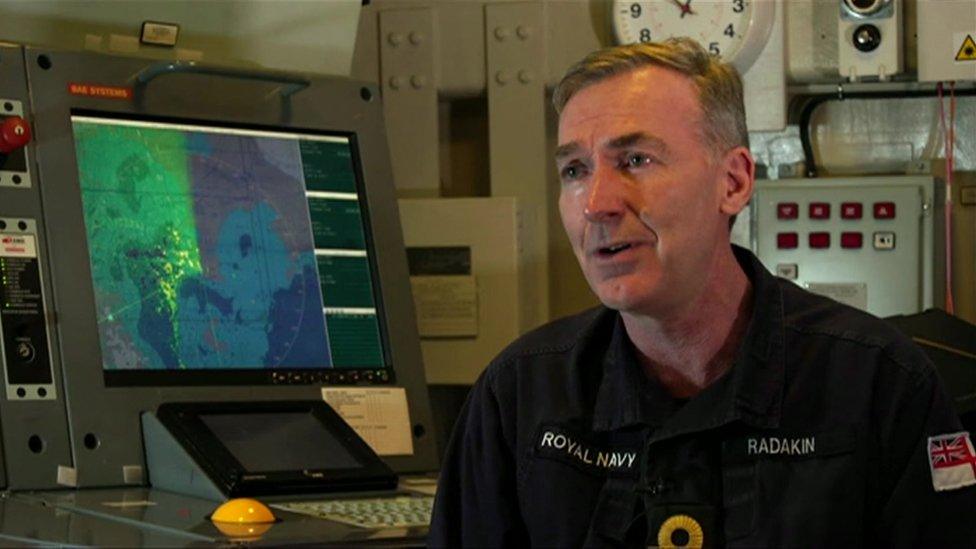PM chooses navy head as new British armed forces chief
- Published
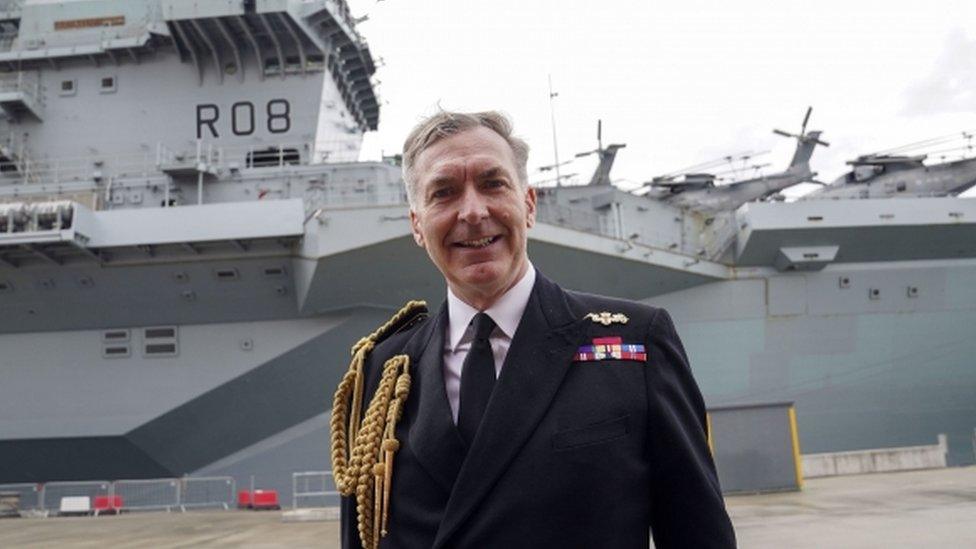
Admiral Sir Tony Radakin will take over the position on 30 November
The head of the navy has been selected as the next chief of Britain's armed forces - the first in 20 years.
Boris Johnson has chosen Admiral Sir Tony Radakin, 55, to take over the position from General Sir Nick Carter.
The prime minister said the new Chief of Defence Staff had proved himself as an "outstanding military leader".
He is credited with "overseeing a period of transformation" in the navy, that has seen "more ships deployed, for longer, all over the world".
Sir Tony will be responsible for leading and setting strategy for defence, as well as conducting operations and maintaining relationships with other military leaders.
This year, he oversaw the deployment of the HMS Queen Elizabeth aircraft carrier and a string of supporting vessels into the Pacific as part of a more aggressive posture towards China.
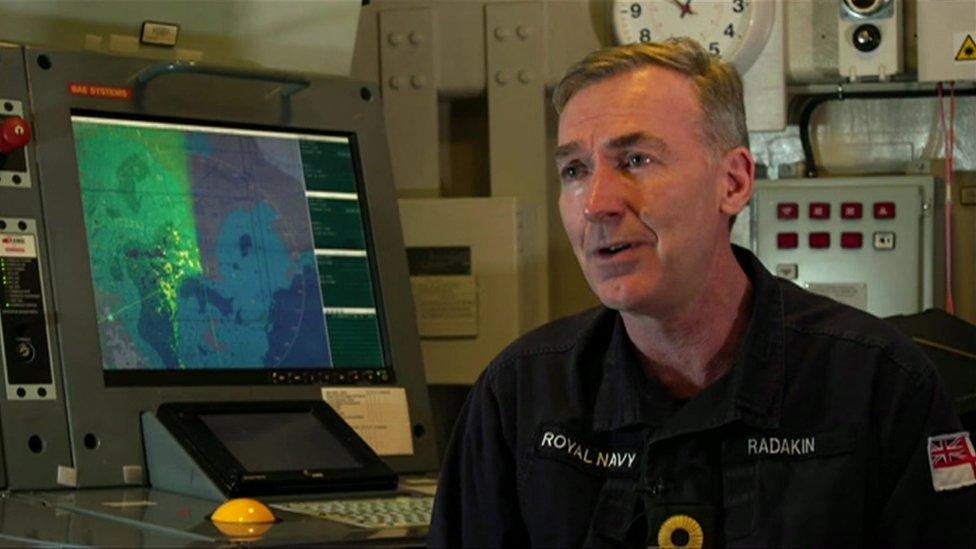
Sir Tony was appointed First Sea Lord and Chief of the Naval Staff in June 2019
Mr Johnson said: "Admiral Tony will lead the armed forces at a time of incredible change while upholding the values and standards that they are respected for around the world.
"I know he will bring drive and dedication to the job and I look forward to working with him."
The PM thanked Sir Nick, whose term had come to an end, for his "decades of steadfast duty spent keeping the UK, its citizens and our allies safe".
He added: "I have valued his wisdom and support through moments of national crisis, including the Covid pandemic.
"He leaves his post at the end of November with the armed forces in excellent health, ready to face whatever challenges tomorrow brings."

Analysis
Jonathan Beale, defence correspondent
The appointment of Admiral Sir Tony Radakin marks a shift.
When Boris Johnson announced extra investment in defence last November, he promised to restore Britain's position as the "foremost naval power in Europe".
The Integrated Defence Review also signalled a "tilt" to the Indo Pacific region in recognition of the rising power of China. Maritime power is seen as key to that.
Hence the current deployment of the Aircraft Carrier HMS Queen Elizabeth to the region.
Sir Tony was also involved in the early discussions that led to the Aukus agreement - the commitment by the US and UK to help Australia build a new fleet of nuclear powered submarines.
UK defence is also investing heavily in its two new aircraft carriers; four new nuclear armed submarines and a fleet of new frigates.
The fact that Sir Tony is politically and media savvy has helped.
Some question his lack of operational experience - he's spent more time behind a desk than driving ships.
But he has delivered for the navy, cutting the number of admirals and increasing the navy's days at sea.
The prime minister believes he's the man who can help transform the armed forces, and just as important to Boris Johnson, help boost British defence exports.

Sir Tony was appointed First Sea Lord and Chief of the Naval Staff in June 2019.
Commissioned in 1990, his operational service has included responding to tanker disputes in Gulf, security duties in the Falklands, countering smuggling in Hong Kong and the Caribbean, and three command tours in Iraq.
Sir Tony said he was "humbled" to be selected as the new head of the armed forces.
"It will be an immense privilege to lead our outstanding people who defend and protect the United Kingdom," he added.
- Published5 September 2021
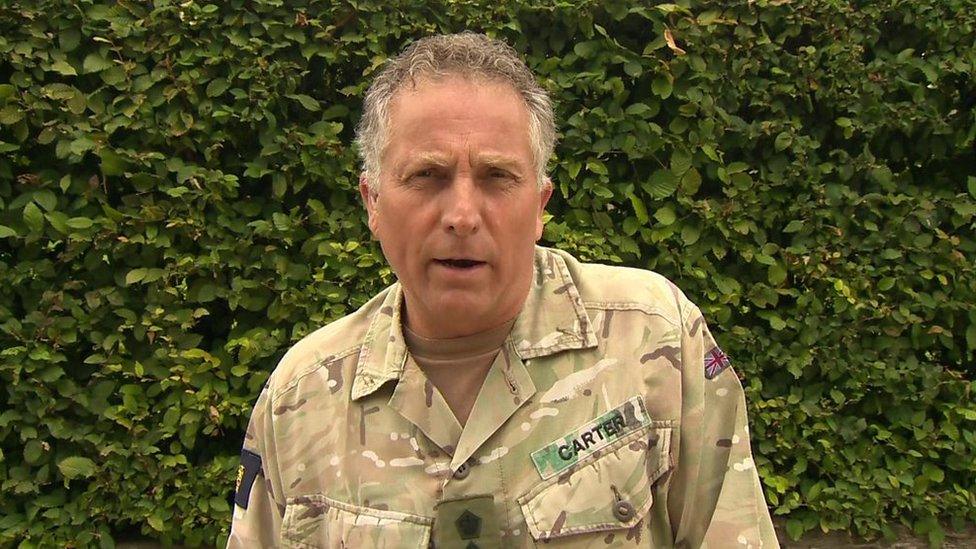
- Published21 May 2021
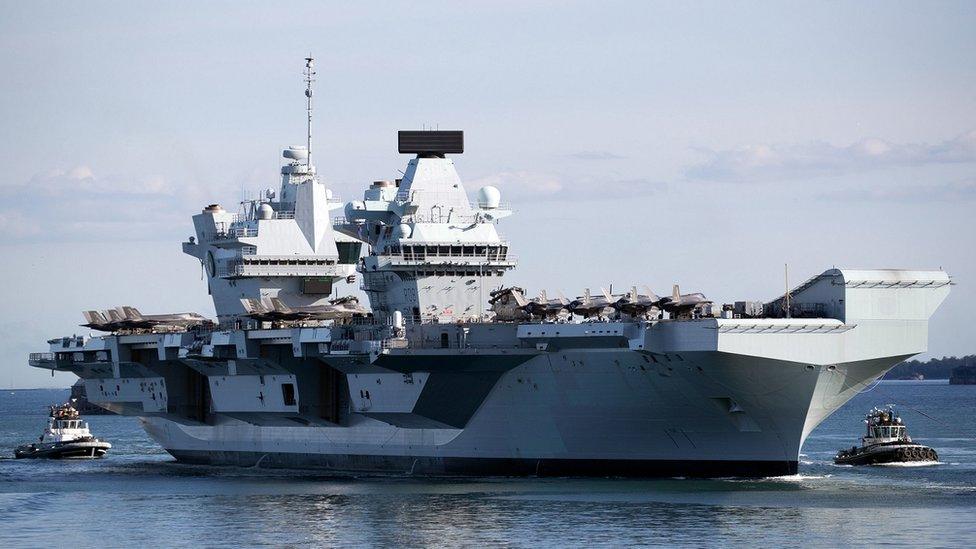
- Published26 June 2020
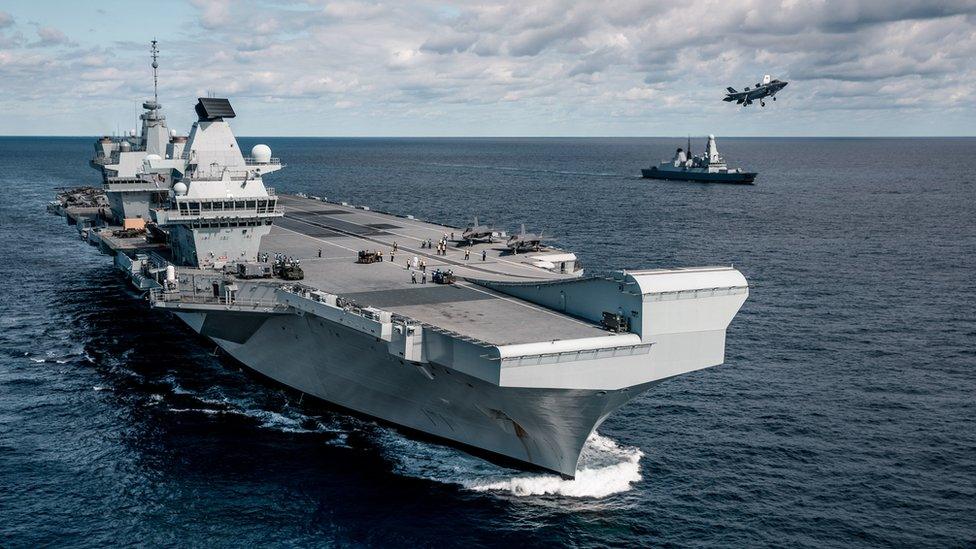
- Published17 December 2019
